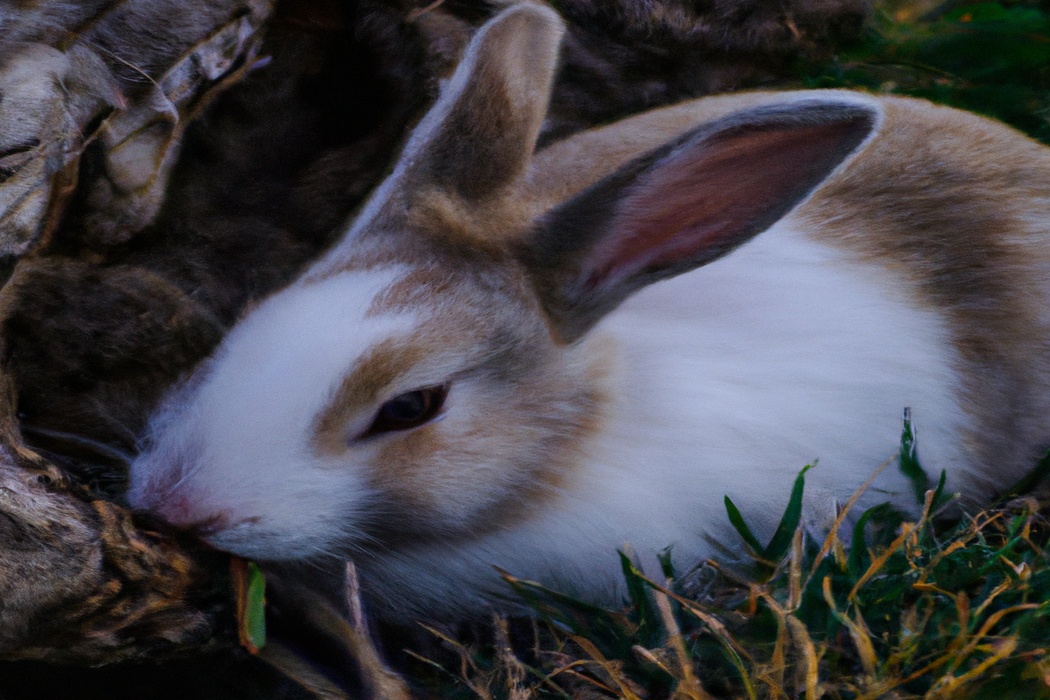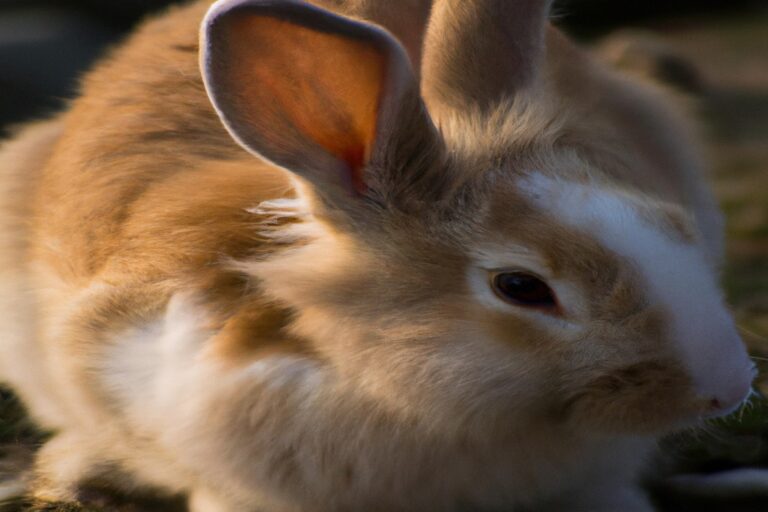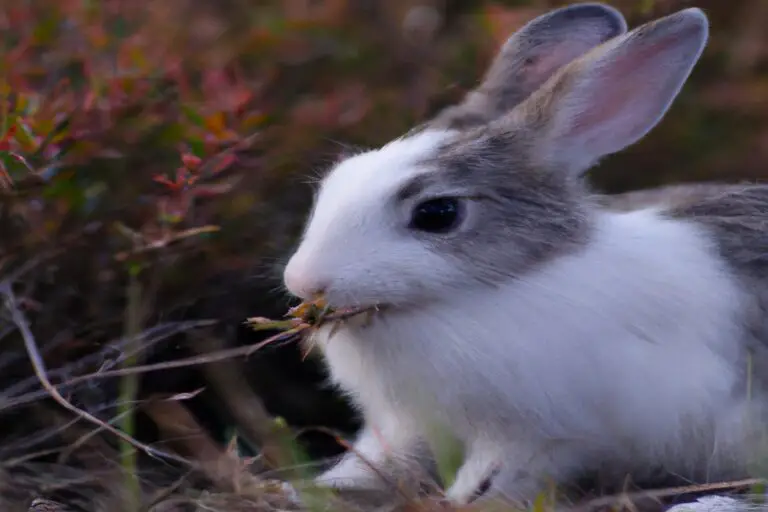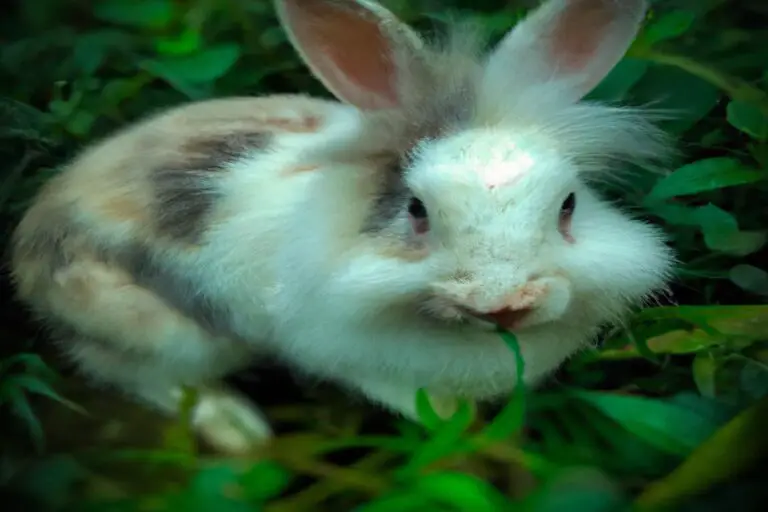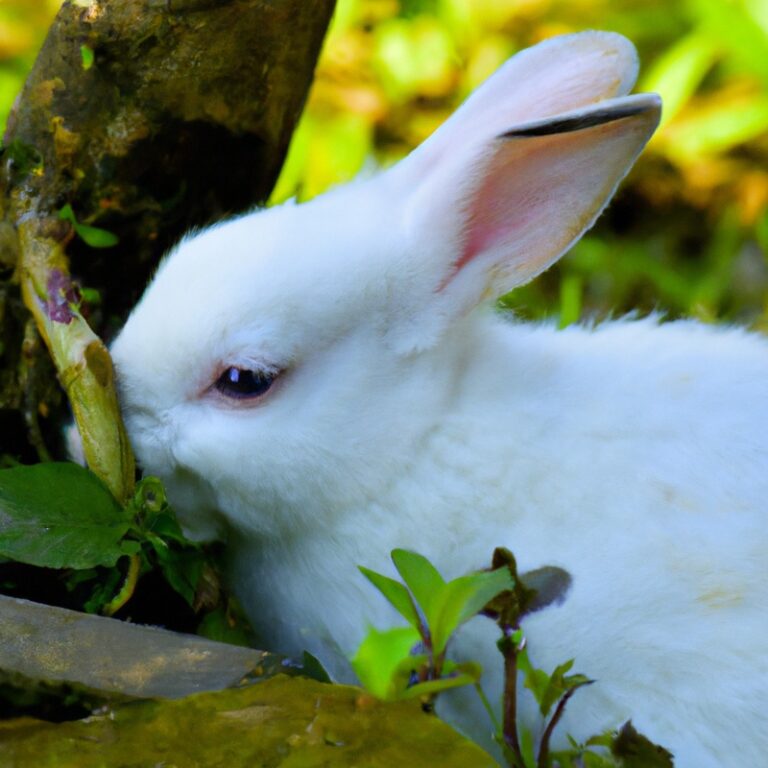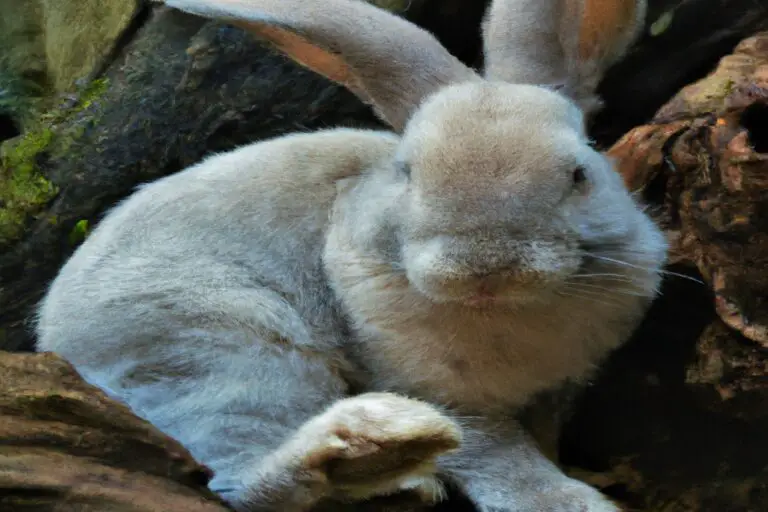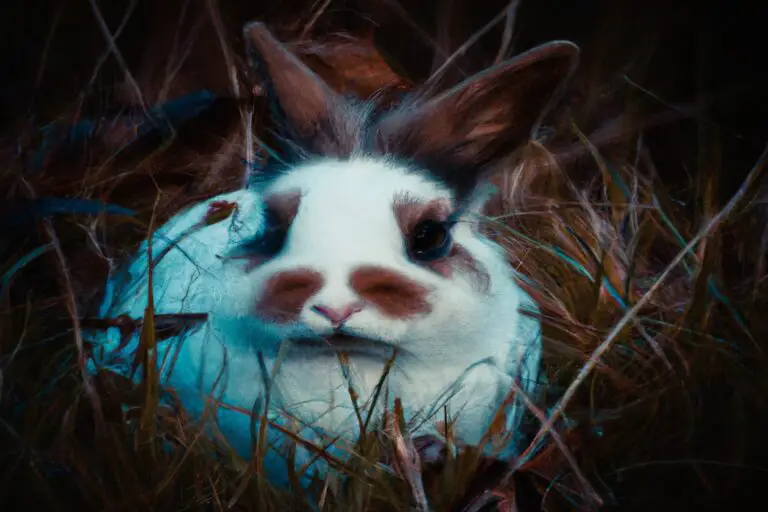How Long Can a Rabbit Go Without Food – Survival Tactics
Key Takeaways:
- Rabbits can typically survive for about 3 to 4 days without food.
- Lack of food can lead to serious health issues for rabbits, so regular feeding is essential.
- Water is more critical for rabbits than food, and they should have a constant supply.
- If a rabbit is not eating for an extended period, it’s important to seek veterinary assistance.
Have you ever wondered just how long a rabbit can survive without food?
Rabbits are known for their adorable hopping and munching on carrots, but what happens if they go without food?
In this article, we will dive deep into the fascinating world of rabbits and explore their normal diet and feeding habits.
We’ll also uncover the signs of hunger in rabbits and discuss the factors that can impact the duration a rabbit can go without food.
So, if you’re curious about the survival abilities of these furry creatures, keep reading to find out all the essential information you need to know!
| Species | Time without food |
| Domestic Rabbit | Up to 48 hours |
| Wild Rabbit | Up to 3 days |
Normal diet and feeding habits of rabbits
Rabbits typically eat a variety of foods, including hay, fresh vegetables, and pellets.
They have specific daily feeding requirements and benefit from a consistent feeding schedule.
Types of food rabbits typically eat
Rabbits typically eat a variety of foods, including fresh hay, vegetables, and pellets.
Hay is an essential part of their diet as it aids in digestion and keeps their teeth in check.
Vegetables like carrots, lettuce, and broccoli provide important nutrients.
Pellets can be given in moderation and should be specifically made for rabbits.
It’s also important to remember that water should always be available for your rabbit to stay hydrated.
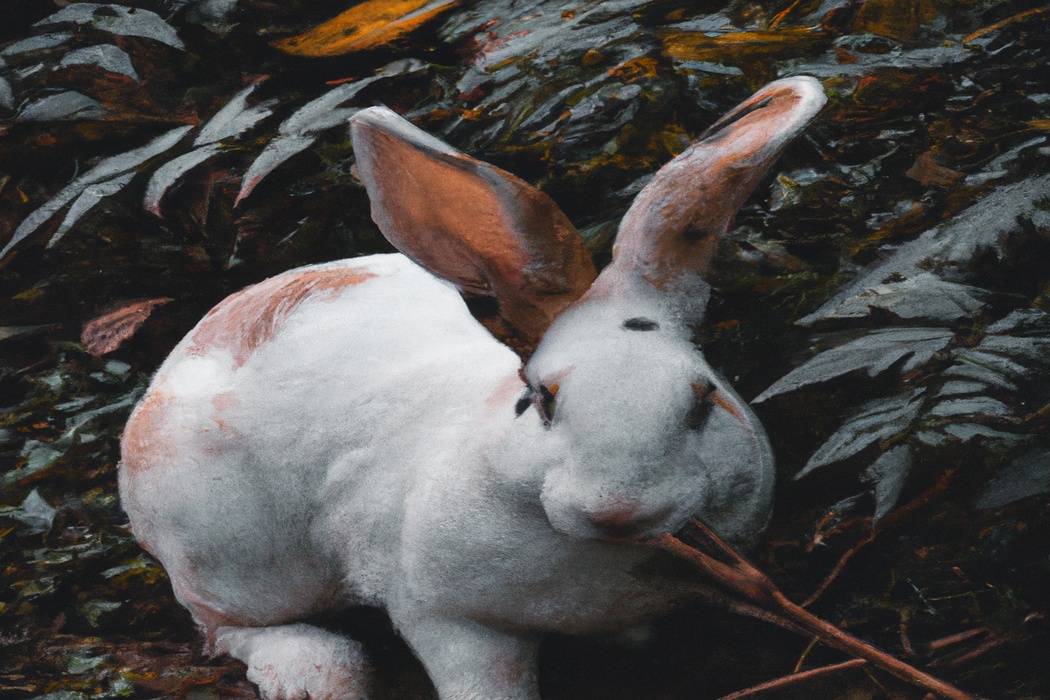
Daily feeding requirements of rabbits
Rabbits have specific daily feeding requirements that are essential for their health and well-being.
These requirements include a diet that consists mainly of high-quality hay, fresh vegetables, and a limited amount of pellets.
Hay should be available at all times and makes up a large portion of a rabbit’s diet, providing both nutrition and helping to keep their teeth healthy.
Fresh vegetables such as leafy greens should be offered daily, while pellets should be given in moderation as they can lead to obesity.
A constant supply of fresh water is also crucial for rabbits.
Ideal feeding schedule for rabbits
The ideal feeding schedule for rabbits is to provide them with fresh grass hay throughout the day. You can also offer a variety of leafy greens such as lettuce, spinach, and kale.
Additionally, rabbits should have access to a limited amount of pellets to ensure they receive all the necessary nutrients.
Fresh water should always be available. Avoid giving rabbits high-starch foods or sugary treats.
Remember, rabbits have sensitive digestive systems, so it’s important to introduce new foods slowly to prevent any tummy upset.
Signs of hunger in rabbits
Rabbits may show behavioral changes and physical symptoms when they are hungry.
Behavioral changes indicating hunger
Behavioral changes indicating hunger in rabbits can include restlessness, excessive chewing or digging, repeated circling of the food area, and persistent begging for food. They may also display increased aggression or frustration, as well as a decreased interest in grooming or playing.
It’s important to pay attention to these signs and provide your rabbit with regular, appropriate meals to ensure their well-being.
Physical symptoms of hunger in rabbits
When a rabbit is hungry, there are some physical symptoms you can look out for.
These include:
- Increased activity and restlessness: A hungry rabbit may become more active and restless, constantly moving around in search of food.
- Chewing on objects: Rabbits have a natural chewing instinct, but when they are hungry, they may start chewing on objects more frequently in an attempt to find something to eat.
- Weight loss: Prolonged hunger can lead to weight loss in rabbits. If you notice your rabbit is losing weight, it could be a sign that they are not getting enough food.
- Digging and burrowing: Hungry rabbits may exhibit increased digging and burrowing behavior, as they try to find any hidden food sources.
- Obsessive hay consumption: Hay is an essential part of a rabbit’s diet, and when they are hungry, they may consume large amounts of hay in a short period of time.
Remember, if you notice any of these physical symptoms of hunger in your rabbit, it’s important to provide them with appropriate food and seek advice from a veterinarian if the symptoms persist.
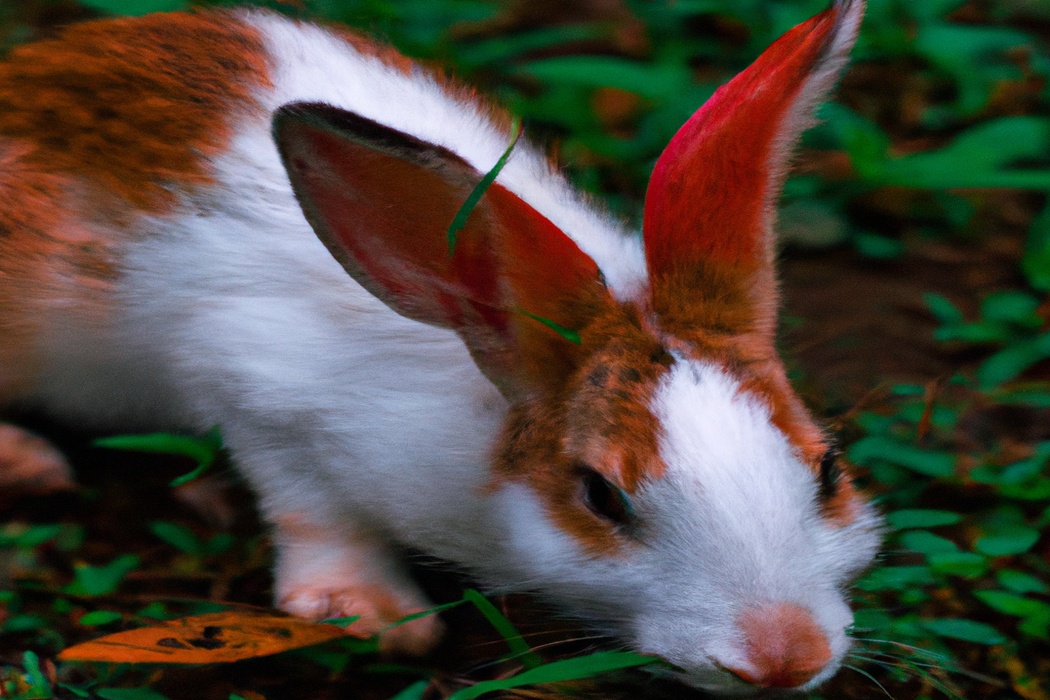
Factors affecting the duration a rabbit can go without food
The duration a rabbit can go without food is influenced by factors such as age and health, environmental conditions, and stress and anxiety levels.
Age and health of the rabbit
The age and health of a rabbit are significant factors that can affect how long it can go without food.
- Age: Young rabbits have higher energy requirements and may not be able to go as long without food compared to adult rabbits. Older rabbits may also have special dietary needs that should be considered.
- Health: If a rabbit has underlying health issues or is already weakened, it may have a shorter tolerance for going without food. It’s important to provide proper nutrition and consult a veterinarian if your rabbit’s health is a concern.
Always remember to provide your rabbit with a healthy diet and monitor their well-being regularly.
If you have any concerns about their age or health, consult with a veterinarian for guidance and support.
Environmental conditions
The environmental conditions play a significant role in determining how long a rabbit can go without food.
The following factors can influence their ability to survive without food:
- Temperature: Rabbits are more sensitive to extreme temperatures. Lower temperatures can decrease their metabolic rate, allowing them to conserve energy and survive longer without food.
- Humidity: High humidity levels can affect a rabbit’s ability to regulate its body temperature. In such conditions, rabbits may need to consume food more frequently to stay hydrated.
- Access to water: Rabbits can survive longer without food if they have access to clean and fresh water. Lack of water can lead to dehydration, affecting their overall wellbeing and ability to go without food.
- Stress levels: Stressful environmental conditions can impact a rabbit’s health and metabolism. High-stress levels may affect their appetite, making it harder for them to go without food for extended periods.
- Presence of predators: If a rabbit feels threatened by the presence of predators, it may choose to avoid food to prioritize its safety. In such situations, their survival without food may be shorter.
It is important to note that while rabbits can survive without food for a certain period, it is always recommended to provide them with a balanced diet to ensure their health and well-being.
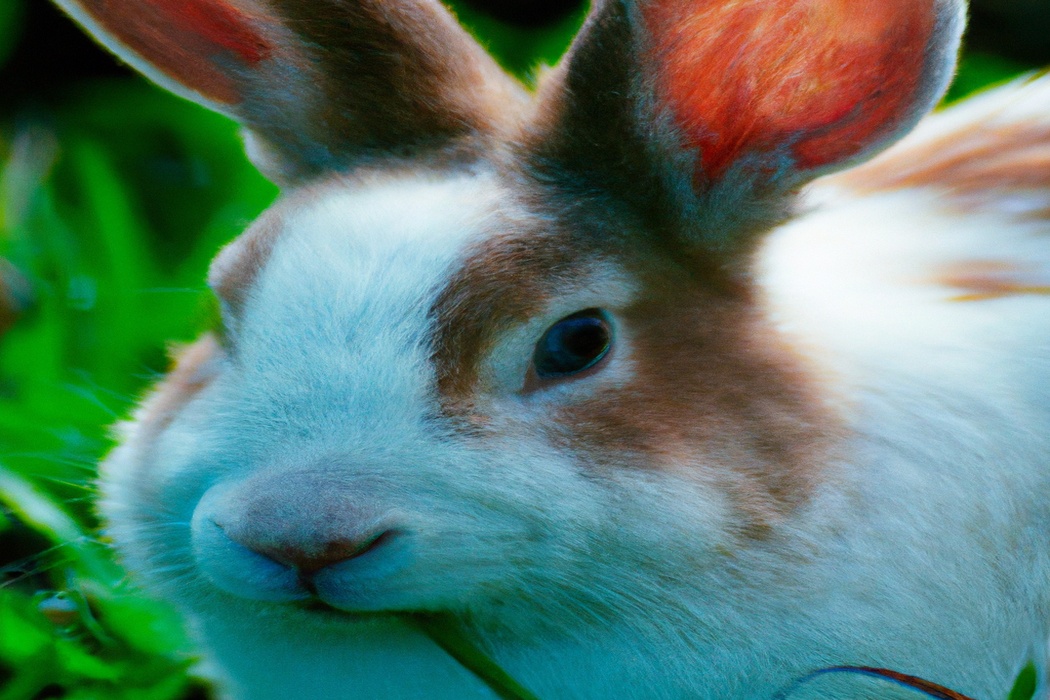
Stress and anxiety levels of the rabbit
Rabbits, like any other animals, can experience stress and anxiety.
Changes in their environment, such as loud noises or sudden movements, can cause them to feel uneasy.
Stress can affect their appetite and overall well-being.
It’s important to create a calm and safe space for your rabbit, with regular routines and gentle handling.
Providing hiding places, toys, and opportunity for exercise can also help reduce their stress levels.
Regular check-ups with a veterinarian can ensure their overall health and address any concerns related to stress and anxiety.
How long can a rabbit go without food?
Rabbits can typically go without food for about 24 to 48 hours.
General guidelines for how long rabbits can survive without food
Rabbits can typically survive without food for about 12-24 hours. However, going without food for an extended period is not recommended as it can lead to serious health issues.
Rabbits have a delicate digestive system, and prolonged fasting can lead to gastrointestinal stasis or even death.
Providing a balanced diet of hay, fresh vegetables, and a small amount of pellets on a daily basis is essential for their overall well-being. If your rabbit is not eating, it is important to consult a veterinarian for guidance and treatment.
The impact of dehydration on a rabbit’s survival time
Dehydration can significantly impact a rabbit’s survival time. Without proper hydration, a rabbit’s body functions are disrupted, leading to a rapid decline in health.
Dehydration affects a rabbit’s digestive system, hindering their ability to process food effectively.
Additionally, it can cause electrolyte imbalances and organ failure. A dehydrated rabbit may struggle to maintain body temperature and experience weakness or lethargy.
In extreme cases, prolonged dehydration can be fatal for a rabbit.
It is crucial to ensure rabbits always have access to fresh water to prevent dehydration and support their well-being.
The importance of seeking veterinary assistance if a rabbit is not eating
If your rabbit is not eating, it is important to seek veterinary assistance as soon as possible. Rabbits have a delicate digestive system that can quickly become compromised if they go without food for too long.
A lack of appetite can be a sign of an underlying health issue or dental problem.
A veterinarian will be able to properly diagnose the problem and provide the necessary treatment. Don’t hesitate to reach out to a professional for help in these situations.
Your rabbit’s health is at stake.
Tips to encourage a rabbit to eat
To encourage your rabbit to eat, try providing a varied and nutritious diet, creating a comfortable and stress-free environment, offering favorite foods and treats, and seeking veterinary advice for appetite stimulants if necessary.
Creating a comfortable and stress-free environment
Creating a comfortable and stress-free environment for your rabbit is essential for their well-being.
Here are a few tips to help you achieve that:
- Provide a spacious living area: Make sure your rabbit has enough room to move around, stretch, and explore. A larger enclosure or playpen will allow them to feel more comfortable and less confined.
- Use appropriate bedding: Choose bedding materials that are safe, comfortable, and absorbent. Avoid using cedar or pine shavings as they can be harmful to their respiratory system. Opt for materials like paper-based bedding or hay.
- Offer hiding spots and toys: Rabbits feel more secure when they have hiding spots like tunnels or boxes. Additionally, provide them with chew toys and enrichment activities to keep them mentally stimulated and entertained.
- Maintain a consistent routine: Rabbits thrive on routine, so try to establish a daily schedule for feeding, playtime, and social interaction. This will help them feel more secure and reduce stress.
- Minimize noise and disturbances: Rabbits are sensitive to loud noises and sudden movements. Place their enclosure in a quiet area of your home away from traffic or noisy appliances.
Remember, creating a comfortable and stress-free environment for your rabbit is a continuous process that requires attentiveness and understanding.
By implementing these tips, you can ensure that your furry friend feels safe and content in their surroundings.
Offering favorite foods and treats
When it comes to offering favorite foods and treats to your rabbit, there are a few things to keep in mind.
Firstly, rabbits have specific dietary needs, so it’s important to choose foods that are safe and healthy for them.
Some great options include fresh greens like kale and spinach, as well as hay and pellets formulated for rabbits.
Secondly, treats should be given in moderation to prevent digestive issues.
Carrot tops, apple slices, and small pieces of banana can make great occasional treats.
Just remember to introduce new foods slowly and monitor your rabbit’s response.
Seeking veterinary advice for appetite stimulants if necessary
If your rabbit is not eating and you’ve tried other methods to encourage their appetite, it may be time to seek veterinary advice. A veterinarian can assess your rabbit’s health and prescribe appetite stimulants if necessary.
They will also be able to determine if there are any underlying medical issues contributing to the loss of appetite.
It’s important to consult with a professional to ensure your rabbit’s well-being.
Frequently Asked Questions
How long can baby rabbits go without food?
Baby rabbits should not go without food for more than 24 hours.
They have delicate digestive systems and require a constant intake of milk from their mothers.
If the mother rabbit is not present or unable to nurse, it is essential to seek immediate veterinary assistance to ensure the health and survival of the baby rabbits.
Can a rabbit survive on only water?
No, a rabbit cannot survive on only water. Like all animals, rabbits require a balanced diet consisting of both food and water to meet their nutritional needs.
Water is essential for a rabbit’s hydration, but they also need to consume a variety of plant-based foods, such as hay, vegetables, and pellets, to obtain necessary nutrients.
Without a proper diet, a rabbit’s health can quickly deteriorate, leading to serious health issues. So, make sure to provide your furry friend with both water and a balanced diet to keep them happy and healthy.
What should I do if my rabbit is not eating?
If your rabbit is not eating, it’s important to take action quickly. Here are a few steps you can take:
- Observe your rabbit: Pay attention to any changes in behavior, such as lethargy or lack of interest in food. This can help you identify if there might be an underlying health issue.
- Offer tempting and fresh food: Try offering a variety of fresh vegetables and hay to entice your rabbit to eat. Make sure the food is clean and free from any contaminants.
- Monitor water intake: Ensure your rabbit is drinking enough water. Dehydration can further decrease appetite, so providing fresh water at all times is essential.
- Consult a veterinarian: If your rabbit continues to refuse food or shows other signs of illness, it’s crucial to seek the advice of a qualified veterinarian who specializes in rabbits. They can perform a thorough examination and recommend appropriate treatment.
Remember, rabbits have delicate digestive systems, and a loss of appetite can be a sign of a serious issue. It’s always better to err on the side of caution and seek professional help if you’re concerned about your rabbit’s eating habits.
Final Verdict
A rabbit’s diet and feeding habits consist of a variety of foods, with daily requirements varying based on their size and age.
Signs of hunger in rabbits can be observed through changes in behavior and physical symptoms.
The duration a rabbit can go without food depends on factors such as age, health, environmental conditions, and stress levels.
While there are general guidelines, dehydration can greatly impact a rabbit’s survival time.
To encourage a rabbit to eat, providing a varied and nutritious diet, creating a stress-free environment, and seeking veterinary assistance are essential.

